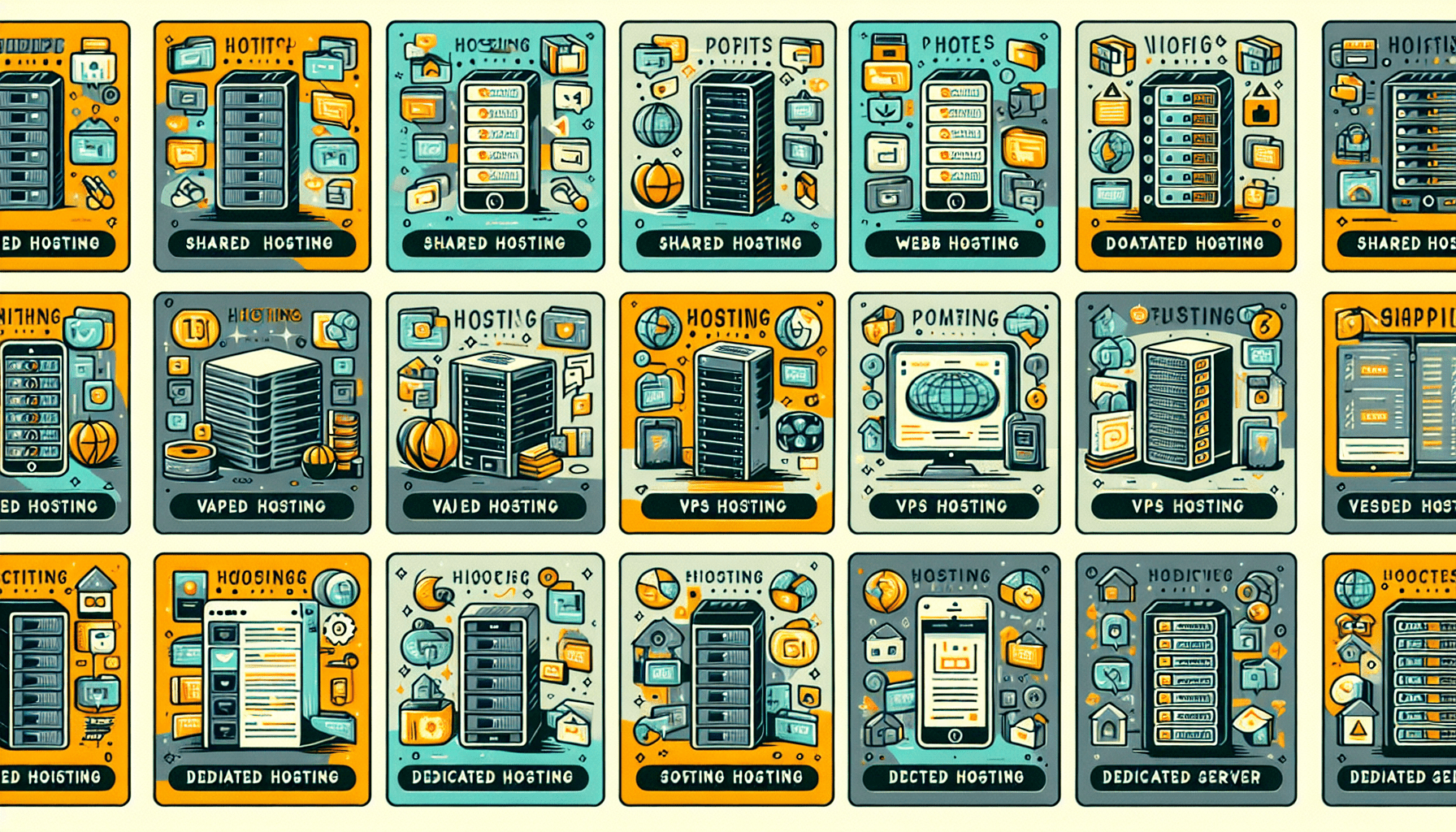Welcome to our article on “Securing Your Website On A Budget: Essential Tips For Small Businesses.” In today’s digital age, having a secure website is crucial for protecting your business and your customers. As a small business owner, it is essential to prioritize the security of your website even if you have limited resources. In this article, we will provide you with practical and cost-effective tips to help you secure your website without breaking the bank. By implementing these tips, you can protect your website from cyber threats and build trust with your customers. Have you ever worried about the security of your small business website but felt overwhelmed by the costs associated with top-tier cybersecurity measures? You’re not alone. Many small business owners face the challenge of protecting their online assets without breaking the bank. The good news is, there are practical and cost-effective steps you can take to secure your website and keep your valuable data safe. In this article, we’ll provide you with essential tips on how to secure your website on a budget. Let’s dive in!
Assess Your Current Security Measures
Before making any changes or investments in your website security, it’s crucial to assess your current security measures. Determine what security protocols are currently in place and if they are sufficient to safeguard your website against potential threats. Identify any vulnerabilities or weaknesses in your security system that could be exploited by cybercriminals.
Converse: It’s like giving your website a check-up to see how healthy and protected it really is.
Keep Your Software Up to Date
One of the easiest and most effective ways to enhance your website’s security is by keeping all software, including your content management system (CMS), plugins, and themes, up to date. Outdated software is a common entry point for cyber threats, as hackers exploit known vulnerabilities in older versions to gain access to your website and data.
Converse: Think of it like getting regular oil changes for your car – it keeps everything running smoothly and helps prevent breakdowns.
Implement Strong Password Practices
Using strong and unique passwords is a fundamental aspect of cybersecurity. Make sure all login credentials for your website, hosting account, and any other digital platforms are complex, containing a mix of uppercase and lowercase letters, numbers, and special characters. Consider using a reliable password manager to securely store and generate strong passwords for all your accounts.
Converse: It’s like creating a lock for your front door that only you have the key to – don’t make it easy for intruders to waltz right in.
Enable HTTPS Encryption
HTTPS encryption ensures that data transferred between a user’s browser and your website is secure and cannot be intercepted by cybercriminals. It also helps build trust with your website visitors, as they can see the padlock icon in their browser’s address bar, indicating a secure connection. Many web hosting providers now offer free SSL certificates, making it easier and more affordable for small businesses to enable HTTPS on their websites.
Converse: It’s like sending important documents in a locked safe instead of on a postcard for the world to see – keep your data safe and sound.
Backup Your Website Regularly
Regularly backing up your website is crucial in case of a cyber attack, data loss, or website outage. Choose a reliable backup solution that automatically backs up your website files, databases, and other essential data on a consistent basis. Store your backups securely, either on a cloud storage platform or an external hard drive, to ensure you can quickly restore your website in the event of a security breach.
Converse: Think of it like making copies of important documents – you never know when you might need to go back and reference them.
Secure Your Admin Dashboard
Your website’s admin dashboard is a prime target for cybercriminals seeking to gain unauthorized access to your website. Secure your admin dashboard by limiting access to only authorized users, implementing two-factor authentication, and regularly monitoring and reviewing user activity logs. Consider renaming your admin login page to make it harder for hackers to find and target.
Converse: It’s like putting a deadbolt on your front door and setting up a security camera – make it as difficult as possible for intruders to breach your defenses.
Invest in Website Security Tools
While cybersecurity tools can be expensive, there are affordable options available that provide essential security features for small businesses. Consider investing in a web application firewall (WAF) to protect your website from common cyber threats, malware scanners to detect and remove malicious code, and security plugins that offer additional layers of protection. Compare different security tools to find the best fit for your budget and security needs.
Converse: Think of it like hiring a security guard to patrol your property and keeping an eye out for any suspicious activity – sometimes a little extra protection can go a long way.
Educate Your Team on Cybersecurity Best Practices
Your employees play a crucial role in maintaining the security of your website and data. Educate your team on cybersecurity best practices, such as how to recognize phishing emails, avoid clicking on suspicious links, and report any security incidents promptly. Conduct regular training sessions to keep your employees informed about the latest cybersecurity threats and strategies to protect your business.
Converse: It’s like teaching your team to lock the doors and windows at night – everyone plays a part in keeping your business safe and secure.
Monitor Your Website’s Security
Regularly monitoring your website’s security is essential to detect any potential threats or breaches. Use security monitoring tools to scan your website for vulnerabilities, malware, and suspicious activity. Set up alerts and notifications to be immediately informed of any security incidents so you can take swift action to address the issue and prevent further damage.
Converse: Think of it like having a security camera system installed in your business – it gives you peace of mind knowing you can keep an eye on things even when you’re not there.
Conduct Security Audits and Penetration Testing
Periodically conducting security audits and penetration testing on your website can help identify weaknesses and vulnerabilities in your security system before cybercriminals exploit them. Hire a cybersecurity expert or utilize online tools to perform thorough audits and simulated attacks to uncover any potential entry points for hackers. Use the findings to strengthen your website’s defenses and mitigate any security risks.
Converse: It’s like having a professional locksmith check all the locks in your home to ensure they’re secure and not easily broken into – prevention is key when it comes to keeping your assets safe.
Stay Informed About Cybersecurity Trends
Cyber threats are constantly evolving, making it essential for small businesses to stay informed about the latest cybersecurity trends, threats, and best practices. Follow reputable cybersecurity blogs, subscribe to security newsletters, and attend industry conferences to stay up-to-date on the latest security developments. Knowledge is power when it comes to protecting your website and business from potential cyber attacks.
Converse: Think of it like reading the news to stay informed about what’s happening in your community – the more you know, the better prepared you’ll be to handle any challenges that come your way.
Conclusion
Securing your website on a budget is achievable with the right strategies and tools in place. By assessing your current security measures, keeping your software up to date, implementing strong password practices, and following other essential tips outlined in this article, you can enhance your website’s security without breaking the bank. Remember, investing in website security is an investment in the future of your business, protecting your valuable data and reputation from potential cyber threats. With these essential tips in mind, you can confidently navigate the digital landscape and safeguard your small business website effectively and affordably. Stay vigilant, stay informed, and stay secure!








